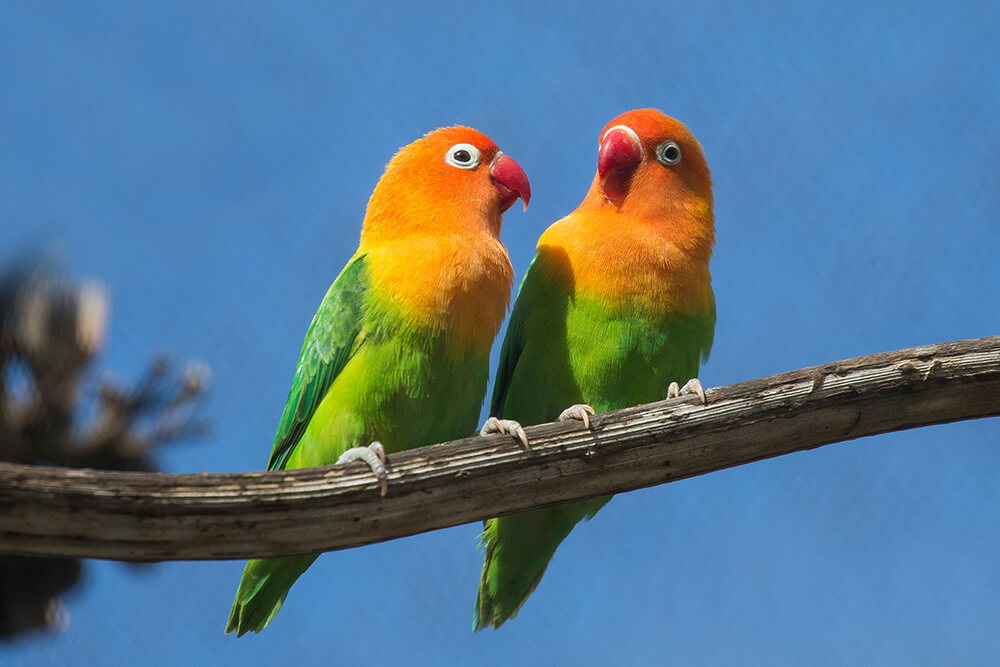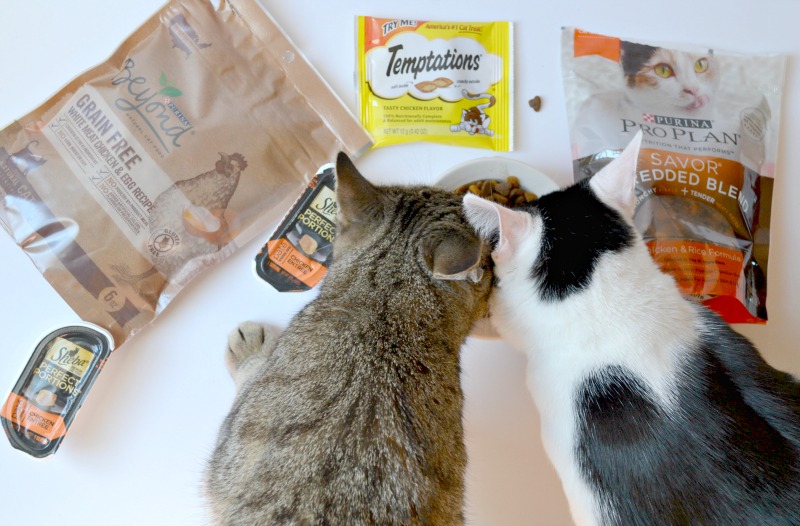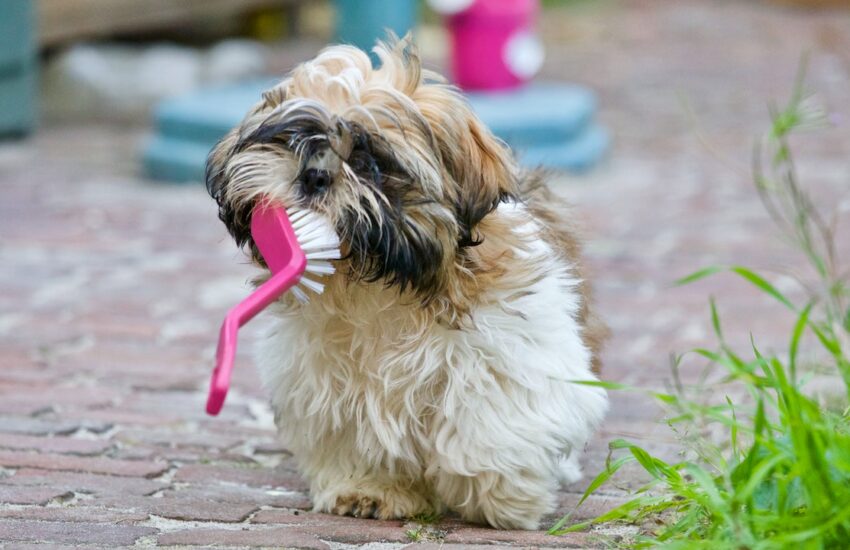Lovebirds101: How to Keep Them Healthy and Happy?

Lovebirds are charming and curious birds that originated from Africa, and many people love to keep them as pets. Keeping one happy calls for serious commitment and interaction, so you need to find a way to keep the bird busy and satisfied. One idea you could consider is keeping the birds in pairs as this gives them the much needed company and comfort. There are few considerations that you need to have in mind that concern the health and wellness of the lovebird.
Here are tips to keep it healthy and happy.
A well-balanced diet
The first thing you should consider to maintain the health of your lovebird is serving a well-balanced diet. In this case, you need to look for specialized palettes, which should make up between 60 and 70 percent of its diet. Include fresh vegetables and some fruits as well as small amounts of fortified seeds. Don’t forget that the bird requires clean, filtered, fresh, and chlorinated water, which you should change daily. As a cautionary measure, don’t feed a lovebird fruit seeds, avocado, caffeine, chocolate, or alcohol. These foods could cause serious health conditions. Also avoid high fat seeds and sugar. Does that sound much? It should not overwhelm you because you can borrow some ideas on Nature In Flight to understand how to set up a feeding routine that is suitable for the bird.
Feeding your lovebird
While feeding your lovebird, there are things you need to remember. Although you might find the right diet for the bird, failure to provide fresh food and water might lead to diseases. Always ensure the food is clean and fresh before serving to the bird. Any vegetables that are not consumed within several hours must be discarded as leaving them to the bird might cause infections in case of contamination. Always keep in mind that treats must exceed 10% of the amount of food the lovebird is fed.
Proper housing guidelines
It’s important to ensure your lovebird is housed well to protect it against infections that come from living in a dirty environment. Lovebirds acclimate to average temperatures, which should not exceed 80 F, so be cautious about temperature changes. Build a habitat that can keep optimum temperatures and place it off the floor away from the drafts at a place that is well-lit. For a pair of lovebirds, you should consider building a habitat of approximately 18”D x 18”W x 24”H, and include metal bars at a spacing of not more than 3/8” apart. The idea is to provide as much space as possible to allow unobstructed movement.
Also, include perches at least ½” in diameter and 4” long. You should provide a variety of these to allow the lovebird to exercise its feet to prevent arthritis. A metal grate should also be installed over the droppings tray to block the bird from droppings. For easier cleaning, you should line the droppings tray with habitat paper or some substrate. This is important as it also prevents contamination. Further, don’t place food or water beneath perches as this would expose the containers to contamination.
The idea is to ensure the environment is as cozy and clean as possible. Lovebirds are able to stay alone and you can also have a pair to allow them to bond with each other. However, you need to respect the rule that different types of birds must not be put in the same habitat as this would cause problems bonding. Use the pet parent to socialize the birds daily to keep them happy.
Habitat maintenance
In addition to providing proper housing, you need to maintain the habitat well. There are basic procedures you must consider that will ensure the bird lives in a clean space. Make sure to clean and disinfect perches and the habitat regularly, and replace habitat linear and substrate often, not more than six days. Dishes, perches, and toys should also be replaced if they are worn or damaged. You need to rotate toys within the habitat on a regular basis. Most importantly, check that there are no toys or parts of the habitat that have lead-based paints or lead because these could cause medical issues if the bird ingests them. Make sure to avoid using cleaning agents around the bird because the fumes can be harmful. Only use natural cleaning products.
Grooming and hygiene
Something you will notice about lovebirds is that they love taking baths. Because of this and to ensure the bird remains clean, consider cleaning it at least twice weekly. Provide chlorine-free, filtered, lukewarm water. You don’t need to focus on clipping flight feathers, but if done well it could prevent injury. For this, you can consult your veterinarian to know what would work best for your bird. Trim all nails to prevent injury.
Normal behavior
In most cases, single lovebirds find it easier to bond with owners, but if you cannot get enough time to provide daily interaction it’s important to keep the birds in pairs. The birds also love to chew, so have many toys in the habitat. For mental stimulation, you should have several toys in the habitat. Note that lovebirds can also be territorial and will have a naturally loud call. Observe to ensure the bird behaves normally and if any deviation is noted you should consult your veterinarian immediately.
Red flags to observe
There are few fags that will tell you the lovebird is not well. These include a swollen beak with accumulations, plucked, soiled, or fluffed feathers, and sitting on the floor longer. Coughing could indicate sickness, and when you observe discolored or runny stools this could be a sign the bird has taken contaminated food or water. If loss of appetite is noted, get the bird checked and treatment administered.
It comes with great joy to keep a lovebird. This is a pet that you can maintain easily if you observe the required guidelines. To keep it happy, you have to ensure it remains healthy and lives in the right habitat. Provide a clean environment and observe hygiene measures like regular cleaning to prevent diseases. Also keep an eye on the behavior of the bird to notice any changes or red flags that might hint it’s sick.

